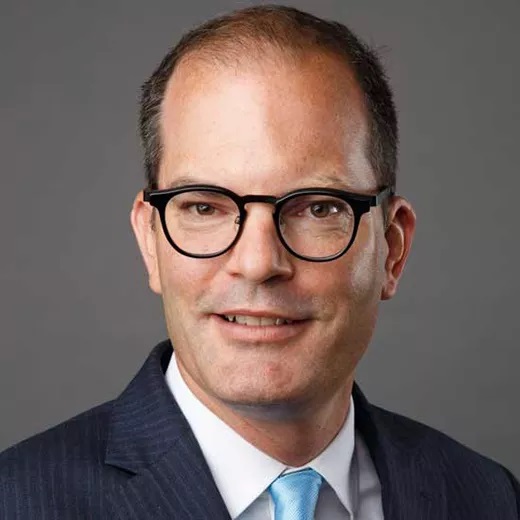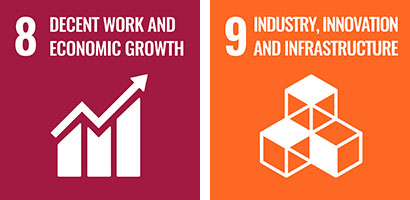Q&A with Fulbright Chair Kevin Boudreau
On May 5, 2023, Professor Kevin Boudreau (Strategy, Innovation & Entrepreneurship) presented his research on “Knowledge, Diversity, and Innovation Performance,” to an audience that included Sprott students, staff, and faculty, and the Sprott School’s Advisory Board Chair. After his talk, Kevin reflected on his tenure as Sprott’s 2022-23 Fulbright Canada Distinguished Research Chair in Entrepreneurship.

Why did you decide to apply to the Fulbright program?
Even before I learned of the Fulbright opportunity, I had started to reflect on the research I had done throughout my career and to think about what I wanted the next twenty years to look like. Also, I was feeling that it was time to build new connections and find ways of contributing in Canada and the region where I grew up. About a month after these thoughts crystallized in my mind, I learned about the Fulbright in Entrepreneurship at Carleton. I spent some weeks talking to faculty within TIM (Carleton’s Technology Innovation Management program) and realized that my interests and theirs were indeed closely aligned. I have known Carleton University all my life and was excited to learn about the opportunities at Sprott.
Could you tell us about the book that you’ve been preparing during the tenure of your Fulbright?
There are three main sections. The first section focuses on the principles of business model design, beginning with the design and construction of a platform. It addresses questions about how people can create, capture, and deliver value with the operating models they are designing. The second section looks at the dynamics of competition and explores the question of how to grow your organization. The third section, which has become especially relevant this year, maps out how we can integrate data science, machine learning, artificial intelligence, and machines into operating models alongside humans and processes.
You can think of it as a comprehensive overview of the steps you would follow if you wanted either to build a new firm or leverage an existing one to harness digital technologies, data science platforms, and digital business modeling. In this respect, the target audience is a manager or student of business. On another level, the book is a distillation of everything that’s been written about the application of new sets of technologies to age-old business model design—like a literature review in which the literature is structured within a set of frameworks that a strategy consultant might be able to use.
It sounds like the book has a real-world practical component. How has your extensive industry experience shaped your program of research?
When carrying out management, economics, and social science research, I’m always thinking about what it’s like to live in an organization and how hard it is to build things and innovate. For me, it’s not just abstract analysis; it’s about understanding how the world’s changing. I don’t see a very big divide between what goes on in academic research and what goes on in real life. It’s just that we have the luxury in academic research to ask questions and then devote the time and resources to study them.
Has the Fulbright allowed you to make connections in Ottawa the way you had hoped?
It takes time to build trust, get a common understanding, and capitalize on aligned interests, and I have established relationships here that are continuing to take shape. I’ve certainly enjoyed engaging with my peers in TIM. Most recently, we have actively interacted among ourselves and with industry and students on the opportunities presented by generative AI. I was really impressed with how quickly and decisively the TIM team sprung into action, for example, to deploy learning and innovation opportunities around ChatGPT. I saw them adapt their curriculum, engage in hackathons, and host a roundtable meeting with people from industry.
Throughout the year I’ve also been learning about ways in which universities, government, and industry can learn and benefit from one another in the Ottawa-area innovation cluster. There may be opportunities for carrying out data analysis or systematic experimentation or building novel digital infrastructure to benefit all involved. I hope and expect that there will be opportunities to undertake projects with government and industry in Canada in the remaining decades of my career.
